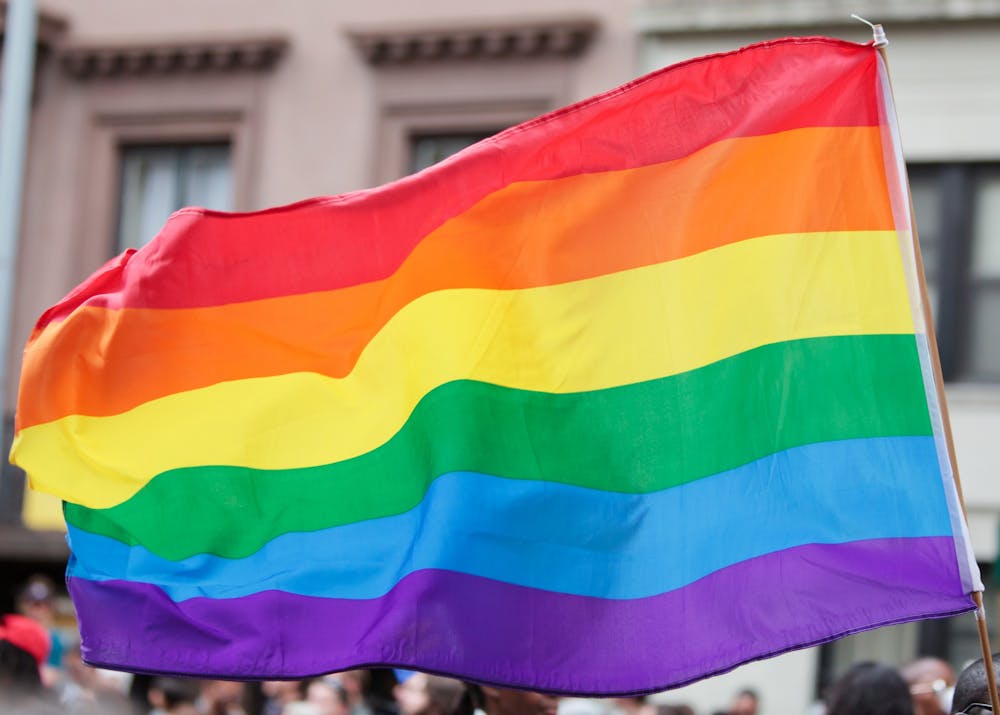It was a word I was familiar with, but it definitely wasn’t something I thought I’d hear in a breakout room mid-afternoon on a weekday.
I’ve dealt with the three-letter slur starting with an “F” and ending with a “G” since I came out in 2015. In my experience, it’s either used as a direct verbal assault or completely out of context.
In this case, the use was completely unrelated from the word’s meaning. The members of the breakout room had no idea I was gay, but that didn’t stop me from reevaluating my safety and comfortability working with these people in class.
At IU and as students, we must move past heteronormative attitudes of assuming you’re always surrounded by straight people to create a respectful and inclusion-based environment.
As I sat in class wondering why that specific word had to be used, I couldn’t help but feel a wave of discomfort. It felt like someone had just pushed me to the side. I was reeling from the reemergence of bouts of trauma related to that word.
I wondered if this was a safe environment to share my ideas. Would anyone here defend me? Was it worth talking in the breakout room? Would my voice sound gay to them over Zoom?
I didn’t unmute myself or show my video through the rest of the breakout room. Though the slur wasn’t directed toward me, I was confused, frustrated and sincerely shaken.
The most common form of harassment for LGBTQIA+ college students is derogatory remarks, according to the National LGBTQ Task Force. A survey conducted by the task force found 20% of college students fear for their safety based on their perceived sexual orientation or gender identity.
IU senior E Awdey, who identifies as nonbinary, said they’ve experienced moments of “not blatant,” but present homophobia and transphobia from students and professors.
Awdey recalled a specific time their professor showed a questionable South Park clip in class that made them uncomfortable. The professor had warned the class it may be considered “politically incorrect.”
Awdey chose not to speak up on their own, but when they were called on they felt they had a duty to call out the professor for showing the video in the first place and not allowing students the option to step out of the room.
“He got a little bit offended even though there were obviously a lot of other things he could have replaced with it,” they said. “I didn’t feel unsafe, but that instance made it really clear that he wasn’t willing to listen to his students about what made them uncomfortable.”
Creating a safe space for queer people means listening to everybody about what makes them feel safe and welcomed, but it especially means paying attention to what doesn’t.
Beyond professors, there needs to be accountability among students as well. If anyone is uncomfortable or notices another student’s discomfort when a professor does something disconcerting, it’s important the professor is addressed and steps are taken to rectify the situation.
Awdey is also in a position where they do not use their given name — the name notated on IU records — in their everyday life, presenting them with the extra challenge of speaking with professors before classes start about their preferred name, they said.
“I was really nervous about it,” Awdey said. “I remember spending a really long time drafting emails and thinking about if they were going to understand or just think I’m being ridiculous. There was a lot of self consciousness involved.”
Assuming you’re surrounded by queer people means professors and student leaders enact concrete policies in courses or clubs to ensure students have the ability to inform you of their preferred name — no questions asked.
It is unacceptable to justify a student’s discomfort because of their sexual orientation or gender identity. As students, we need to emphasize the importance of accountability, acceptance and awareness, while professors need to set the standard for inclusion and respect.
Otherwise, queer students such as myself will continue to evaluate our own safety and comfort on a constant basis.
Chris Sciortino (he/him) is a sophomore studying theater and political science. He's an NPR and musical theater fanatic, and also a proud member of the Singing Hoosiers.




